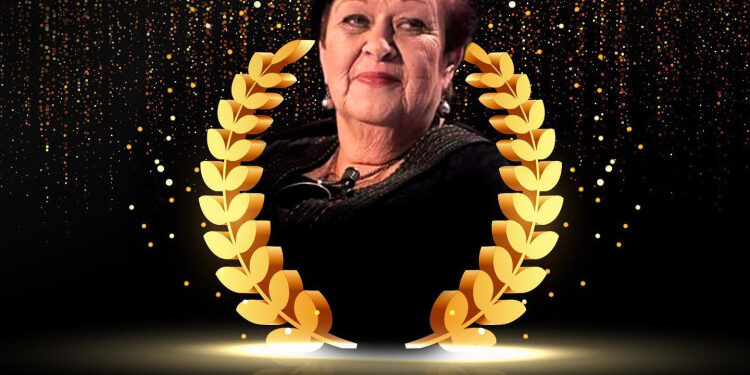The management of the International Film Festival of Women of Assouan decided to honor the great Tunisian director and producer Salma Baccar, during the opening ceremony of her seventh edition, which will be held from March 5 to 10, in recognition of her remarkable career. Salma Baccar is considered one of the pioneers of Arab cinema and the first Tunisian director to produce her own works.
Salma Baccar was born on December 15, 1945. After studying cinema at the National Institute of Arts and Techniques of Cinema in Paris, she began her career by making two short films as part of the Tunisian Federation of Amateur filmmakers (FTCA). She then worked for Tunisian television (ERTT) and was also assistant director on the set of several films before making her first fiction feature film, Fatma 75in 1975 which approached the condition of women in postcolonial Tunisia. She then continues with other committed films, such as Fire dance (1994) who traces the life of the singer and dancer Habiba Msika, or Khochkhach (2006), which highlights the condition of working women in Tunisia.
His latest film Al Jaida (2017) tells the story of women of different age, temperament and social backgrounds, but who find themselves imprisoned all together in Dar Joued, just before the independence of Tunisia. Salma Baccar explained that she had written her film Al Jaida In 2007, but that she rewritten her after the 2011 Tunisian Revolution, because she was afraid that Tunisian women’s rights were questioned. Indeed, the Islamists in power had spoken to restoring polygamy, of complementarity of women and had especially wanted to introduce sharia in the Constitution.
In 1990, Salma Baccar had become the first woman to work in film production in Tunisia, producing films for directors such as Mohamed Ali El Oqby, Mahmoud Ben Mahmoud, Najia Ben Mahmoud and Abdellatif Ben Ammar
After the Tunisian revolution, Salma Baccar was elected member of the National Council of the Constituent Assembly responsible for the drafting of the Tunisian Constitution. It was forcefully present on the Tunisian political scene as a deputy in the Tunisian Parliament, defending the rights and freedoms of women and minorities.
Dr. Azza Kamel, vice-president of the Board of Directors of the International Film Festival of Assouan women, said that Salma Baccar was a great personality not only in Tunisian cinema, but also in Arab cinema. His films expressed the concerns of Tunisian women at different historical eras, in addition to her historical role as the first Tunisian director of a fictional feature. She stressed that the festival sought to honor creative women who contributed to the expression of women’s questions in different parts of the world.
Dr. Azza stressed that Salma Baccar’s fight for women’s questions has not limited itself to the screen, as a director or producer, but that it was also present and active on the Tunisian political scene, as a member of the National Assembly Constituent for the drafting of the Constitution after the Jasmine Revolution and as a member of Parliament in the Tunisian Parliament defending rights and freedoms. She confirmed that the tribute to Salma Baccar also was a tribute to Tunisian cinema which in recent years had great success at the international level with her films.
The International Film of the Film of the Assouan Woman will highlight the exceptional contribution of Salma Baccar to the Arab cinema and female questions. His remarkable creative journey made it possible to give a voice to Tunisian women and to reflect their concerns in her cinematographic and television works. As a pioneer in Arab cinema, she was able to pave the way for women directors and producers in Tunisia and the region. The tribute to him will not fail to underline his commitment not only as an artist, but also as an activist for rights and freedoms in Tunisia. This recognition is a great opportunity to celebrate Tunisian cinema and its contribution to culture and society.
Neïla Driss, according to press release.








